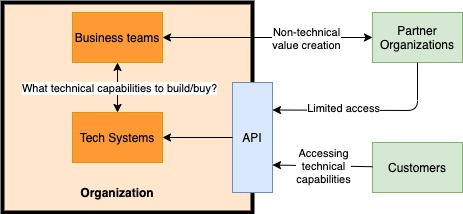Even building this little digital window into its business can have dramatic effects for a company and a lot of hitherto old-school companies find even this limited digital transformation extremely challenging. Consider that you are a bank which has hundreds of branching running paper based banking processes. Every one of these processes has been refined over decades to cater to every customer touch-point with certain SLA. e.g. Opening a bank account may involve filling out a form, submitting many documents, repeated trips to the branch office, all taking 3-4 days.
Also, what good is a createAccount API without a checkBalance API or a transferFunds API? If the bank continues to offer deeper online access to its capabilities, it is disrupting its legacy business very rudely and you can bet that a lot of feathers are being ruffled. If it doesn’t offer these capabilities or offers some arbitrary subset of them, the entire digital customer experience is sub-par and the “digital transformation” stalls or fails.

This topic was illuminating, because opening up the APi’s usually has profound implications on the enterprises. I was under the impression that opening up API’s is usually “unidirectional” but if it is bidirectional, it would reverberate and create changes in the reverse direction. It can also be a simple way to grow the network effects.
One drawback of tagging along with the API’s of any major platform is the discretionary power with them. For example, I heard and read about discretionary closing of the Twitter’s API’s or their algorithmic biases. At the time when I started my presence on Twitter, their algorithmic sorting frustrated me (which has now become worse). I had to rely on a Mac app to follow the tweets in a timeline. However, it soon overwhelmed me. Over time, I have developed some methodologies to consume content from there, but it remains a sub-par experience to deal with them anyway. The application was forced to toe their API’s limitations.
Therefore, this blog post brings in fresh perspectives on API’s. Good read.